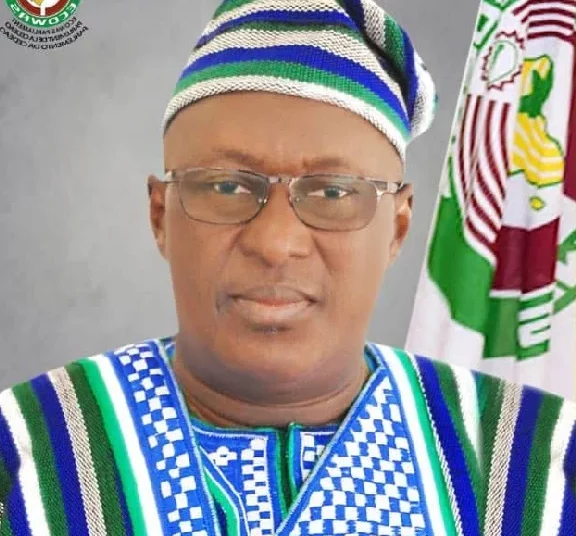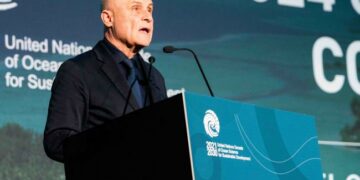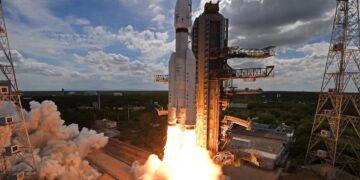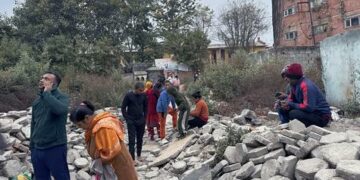The West African sub-region is making enormous efforts to boost agriculture and ensure food security and nutrition amid the challenges posed by climate change, the devastating impacts of the COVID-19 as well as the war between Russia and Ukraine.
This was the focus of the Parliament of the Economic Community of West African States (ECOWAS) during a delocalised meeting of its Joint Committee on Agriculture, Environment and Natural Resources/ Infrastructure/ Energy and Mines/ Industry and Private Sector that just ended in Bissau, capital of Guinea Bissau on Saturday.
The delocalised meeting with the theme, “A critical look at the ECOWAS Environmental Policy and Climate Strategy, as well as a biennial review of the agricultural production, food and nutritional security in Member States”, became necessary because of major challenges facing the region.
These challenges include; security, health, economic and climate crisis characterised by droughts, floods and coastal erosion, which are amongst the adverse effects of climate change.
These adverse effects in the sub-region need immediate solutions to address them and based on this the Co-chair of the Joint Committee, Hon. Samson Ahi, said “our region is dealing with both security, health, economic and climate crises. This last aspect, which is essentially linked to climate change, remains of great concern to us because the West African sub region is mainly an agricultural zone.
“Consequently, the hazards and adverse effects of climate change including, amongst others, the recurrent droughts, floods and coastal erosion have a clear impact on the agricultural performance and food security in our countries.
“Hence, if we are not careful, these negative factors could permanently jeopardise our gains and frustrate our goals and dreams as contained in the newly adopted ECOWAS vision 2050”.
The head of Guinea Bissau Delegation to ECOWAS Parliament, Hon. Califa Seidi, lamented that half of the population of the region is living below poverty lines as a result of food insecurity caused by climate change.
Hon. Seidi, however, charged all to endeavour to make Agriculture more sustainable, saying “there is need for scientific methodology which is aimed at making agriculture more sustainable and within the framework of environmental friendly processes”.
While declaring the meeting open, the Speaker of the Guinea Bissau Parliament, Hon. Cipriano Cassama, stressed the need to have a greater balance in defending the ecosystem in the face of climate change.
Nature has given Africa the best environmental condition to prosper with fertile agricultural lands but the region is still grappling with poor productivity in this sector due lack of coordinated structure and investment in the food value chain.
With increasing population, West Africa cannot afford to leave its agriculture sector seriously underdeveloped because of the threat it poses to its citizens and perhaps to the rest of the world.
According to the World Food Programme (WFP) Hunger in West Africa reached record high in a decade as the region faces an unprecedented crisis exacerbated by Russia-Ukraine conflict.
According to Cadre Harmionise, an estimated 27.3 million people faced acute food insecurity between March and May 2022 and this number has been projected to increase to an unprecedented 38.3 million between June and August 2022 if humanitarian interventions are not scaled up. Perhaps the countries hardest hit by the food crisis in the region include Burkina Faso, Niger, Chad, Mali, and Nigeria.
It has become incumbent on the regional legislature led by Speaker Sidie Mohamamed Tunis, to come out with relevant and concrete recommendations reflecting the need for Parliamentarians to contribute to all ECOWAS efforts and actions targeted at tackling the effects of climate change and improving agricultural production in the region.
The deteriorating situation needs to be checked before it gets out of control. West Africa must liaise with the United Nations World Food Programme (WFP) , the World Bank and others for longer-term political and financial commitments to address the worst food security and nutrition crisis in the region.
However, the major chunk of the efforts must come from the leaders of ECOWAS. They must respond by addressing food emergencies and structural challenges in the West African food system to attain the objective of the Sustainable Development Goals (SDGs, specifically SDG 2).





